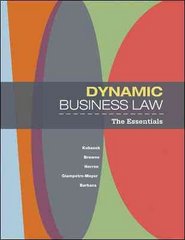Question
Many reasons for why the United Kingdom voted to leave the European Union have been proposed. A common one is that imports from the EU
Many reasons for why the United Kingdom voted to leave the European Union have been
proposed. A common one is that imports from the EU hurt low-skilled British workers. This question
will ask you to analyze what effect Brexit (the UK's exit from the EU) may have on relative wages for
high-skilled and low-skilled workers in the UK using the Heckscher-Ohlin model of international trade.
Suppose that there are two industries: financial services and manufacturing. Further assume that there
are two factors of production, low-skilled and high-skilled workers, and that finance is high-skill
intensive and manufacturing is low-skill intensive. Further assume that the United Kingdom is
abundant in high-skill labor (i.e. it has relatively more high-skilled workers than the rest of the EU).
a) Show using the Heckscher-Ohlin model of international trade how relative wages for low skilled and
high-skilled workers are determined when the UK is a member of the EU (i.e. when there is free trade
between the UK and the rest of the EU). Explain your answer. (1 Marks)
b) Now suppose that the UK leaves the EU. For simplicity, we will model this as autarky, i.e. that all
trade between the UK and the EU stops. How do real wages of low-skilled and high skilled workers
change (remember that the UK is abundant in high-skilled labor)? Explain your answer. (1 Marks)
c) Home's demand curve for wheat is D = 100 - 20P. Its supply curve is S = 20 + 20P. Derive and graph
Home's import demand schedule. What would the price of wheat be in the absence of trade? (2 Marks)
Step by Step Solution
There are 3 Steps involved in it
Step: 1

Get Instant Access to Expert-Tailored Solutions
See step-by-step solutions with expert insights and AI powered tools for academic success
Step: 2

Step: 3

Ace Your Homework with AI
Get the answers you need in no time with our AI-driven, step-by-step assistance
Get Started


